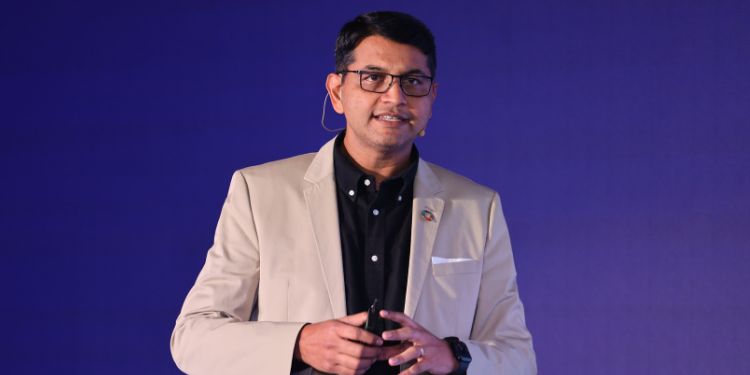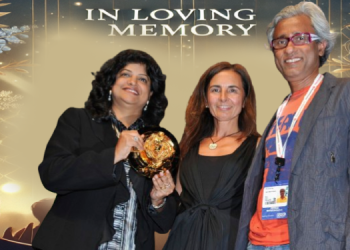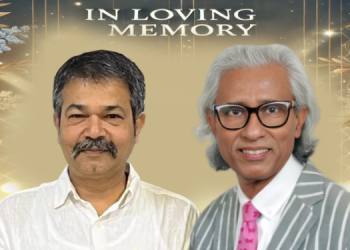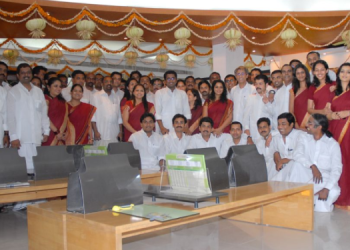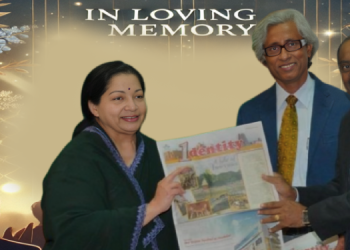Kedar Lele, Executive Director – Customer Development, HUL & Head of Customer Development, South Asia, was a keynote speaker at ‘WPP Commerce’ hosted in Mumbai on 16 November 2022.
Lele touched upon the 130 year-old global FMCG behemoth’s belief in driving sustainability before underlined India’s potential and the company’s approach to today’s omni-channel reality.
India, the Growth Market
“After a very long time we have been able to say that we are in the top five economies of the world. We seem to be in a place which economists today call the only bright spot in the world in 2023.
“Our demographics are evolving; we are still a young country. Everyone seems to be having a smartphone these days. I worked in Bangladesh for a few years and the number of telephone connections were more than the number of people in that country.
“We also believe that not just in FMCG but across any of the categories, there’s enough head room to grow. If you are in India and happen to be in a business, you are in a growth business.
“In an environment which is shifting so quickly the only thing that we have to be cautious about is, ‘Are we staying relevant to our consumers and customers?’”
He added, “For a company like HUL it became really urgent and essential to start looking at business in the new environment. When we looked at ourselves we said we are a bunch of large brands which people love, but the business was very linear. We would procure stuff, convert that in factories, send it to distribution houses and finally sell it. But today with connected consumers and an inter-connected consumer journey, the new languages that we are learning are not linear. So we said we have got to re-evaluate this large company and look at the ecosystem which could be consumer, customer and operations and then all of this should be based on data.”
Connected Operations
Lele remarked, “There could be five different factories producing the same item in the country and those factories could be talking to each other in order to increase the efficiency of their operations. It can be done sitting in a control tower. We are talking about efficiency all the time because in the FMCG business the first thing that you are going to have is a good product that consumers like and after that it’s a game of efficiency. We are super-efficient; otherwise we wouldn’t be able to sell those shampoo sachets for 50 paise and Rs.1 for the last 30 years and yet make money over a period of time. If you have decided to serve the needs of consumers across the width and length of the country across the LSM (Living Standards Measure) pyramid then you have got the edge.
Kirana, Phygital and D2C
Lele explained the start of the management system for distributors in 2004, billing it as ‘a first such effort by a large company’ It had its early challenges with some distributors having to adapt to computerisation. The data generated today is proving valuable for the entire chain.
“‘Kirana’ has become the centre of conversation these days; everyone and their fellow investors wants to unlock the kirana space because when we are sitting in board rooms anything that is unorganised is considered to be inefficient. We did a connected store with ‘Humara shop’; we did something else a little while back.
“We do believe that the power of neighbourhood retailer is here to stay. We believed that pre, during and post Covid,” underlined Lele.
“In this time when Kirana is the conversation point, the kirana or retailer becomes the centre of this conversation and hence all models we are putting in have to be retailer oriented, because we want them to thrive. We should be proud of having a nation of shopkeepers because these are very low cost local retailers who run a professional enterprise which generates profit and employment,” the spokesperson added.
Lele also revealed details about an an app called ‘Shikhar’ from HUL.
“In today’s e-B2B contest irrespective of the company, size or investor, if there’s one app which goes to million-plus retailers in India with 60pc of people logging regularly it’s ‘Shikhar’ run by HUL. The app in itself makes sure that any retailer which we have, whether s/he is in our system today or not can access our assortment, price discovery, can order online and can do this with a click of a button. You are able to make sure that the small stores which were not getting service regularly by sales people get service. ‘Phygital’ is what will work in this country is so true,” explained the ED.
The concept of phygital extends beyond distribution. In the company’s manufacturing plant, there has been a realisation that co-located robots (co-bots) are better than automated robots because they increase and enhance the efficiency of human being already there.
“30pc of the orders in this app (Shikhar) are put in between 8 and 12 in the night. There are some orders that come early in the morning. It lets you do something which a sales person wouldn’t have done; that is why we are going towards phygital. It makes everything discoverable, it can speak in 10 languages, you can book orders with a voice system. All of this system works together to get us close to 20pc of our general trade sales and we are a Rs.50,000 crore company.
Besides its physical retail network, the company offers all its brands on theushop.co.in. It serves 2500 cities, 28,000 pincodes and about 3 million plus consumers every month, noted the speaker.
“You like products which have been customised to your small requirement. As of today we have got 14 D2C offerings,” surmised Lele.

